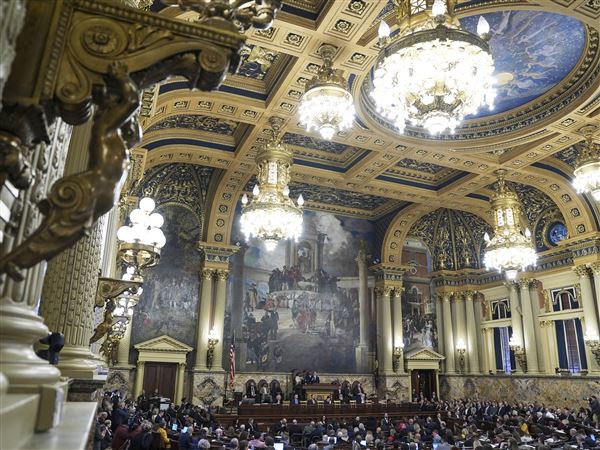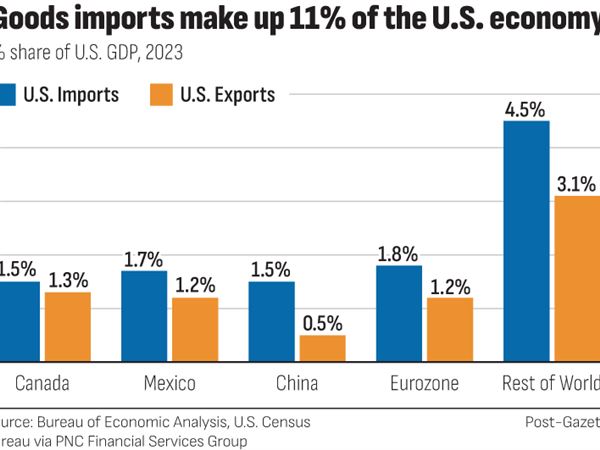My husband and I have owned a branding and graphic design business since 1993. Some politicians call us "job creators." They say that unless we extend the Bush tax cuts for the richest 2 percent of Americans, small businesses like ours will be hurt. Don't believe it.
I've always had a problem with the term "job creator." It makes it sound like business people wake up in the morning and say, "I think I will go and create jobs today."
Job creation doesn't work this way, in a vacuum. Business owners like me create more jobs when we need more employees to meet the demand for goods and services our businesses provide. And we deduct employee costs from our taxable income. So demand is the key to job creation -- not tax cuts.
But "job creator" is an effective smokescreen for the effort to justify more tax cuts for the wealthy.
If the Bush tax cuts were extended past their Dec. 31 expiration date only for taxable household income below $250,000, but not for income above it, the vast majority of small business owners wouldn't be affected. Just 3 percent of taxpayers with business income have income above $250,000, and that 3 percent includes hedge fund managers, corporate lobbyists and big business CEOs earning extra income from sitting on the boards of other big businesses.
Tax cuts for small business "job creators" has a much nicer ring to it than tax cuts for hedge fund managers.
A recent study of tax rates and economic growth since 1945 by the nonpartisan Congressional Research Service said, "Tax rates affecting taxpayers at the top of the income distribution are currently at their lowest levels since the end of the second World War."
The Congressional Research Service found no evidence that cutting taxes increased economic growth. The report did find that "the top tax rate reductions appear to be associated with the increasing concentration of income at the top of the income distribution."
No one should be alarmed at resetting top tax rates on income over $250,000 to their levels in the 1990s. After all, the Clinton era ended with the creation of 23 million jobs and a budget surplus. It was the tax-cutting Bush era that ended in economic disaster.
Our business has weathered the last four years since the economic meltdown and stayed true to our focus -- helping clients in manufacturing, green building, information technology and other professional services who are building sustainable businesses, as well as non-profit clients. We've made hard tradeoffs -- continuing full employee health coverage while not providing raises that our employees need to keep up with the rising cost of living. This is a direct impact of our clients pulling in the reins on their spending as consumer demand remains low and governments cut budgets for such things as infrastructure and social services.
It makes no sense to give more tax breaks to the wealthy, which would be paid for in part by laying off teachers, first responders, food safety inspectors and other public service workers. It makes no sense to give more tax cuts to the wealthy instead of contracts to construction firms and manufacturers to transform our failing infrastructure built in the 19th and 20th centuries into efficient, safe, modern infrastructure fit for a 21st-century economy.
Rather than giving another $1 trillion over the next decade in tax cuts to the richest 2 percent of Americans, let's instead invest in making our businesses and communities stronger. Let's do what past generations did and fix our roads, bridges, railways, ports and mass transit systems. Let's invest in education and research and development to create jobs that provide living wages and good benefits in healthy, innovative workplaces.
Rather than rewarding the Wall Street speculators who wrecked our economy with more tax cuts, let's make sure that real small businesses have the government-backed credit and assistance they need to not only sustain their businesses, but make them smarter and better.
Without these sorts of investments, and the innovations, jobs and customer demand they create, we will certainly see small businesses -- the real job creators -- feel even more of a squeeze. And many more will fail.
Now that's something our nation really can't afford.
First Published: December 4, 2012, 5:00 a.m.















